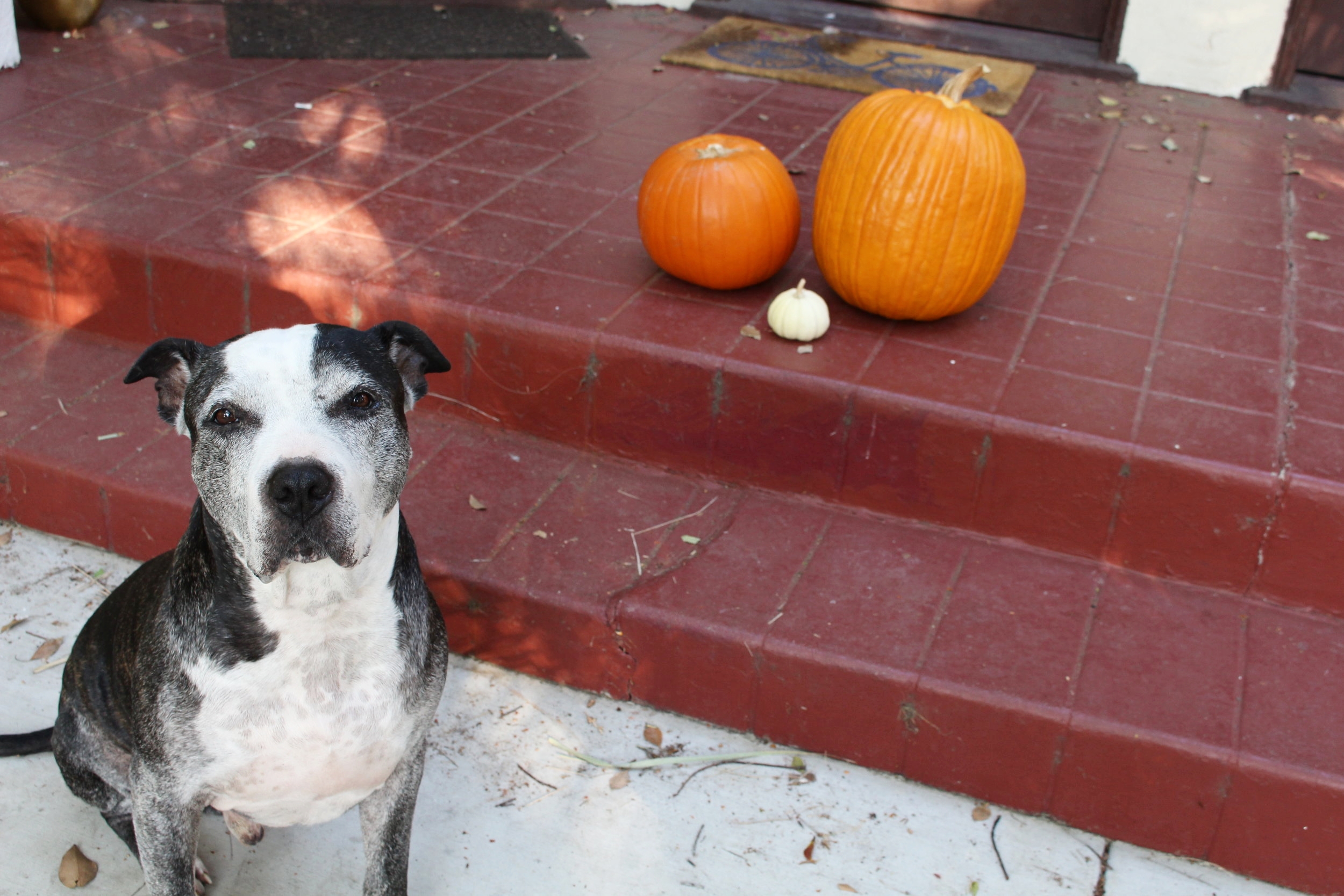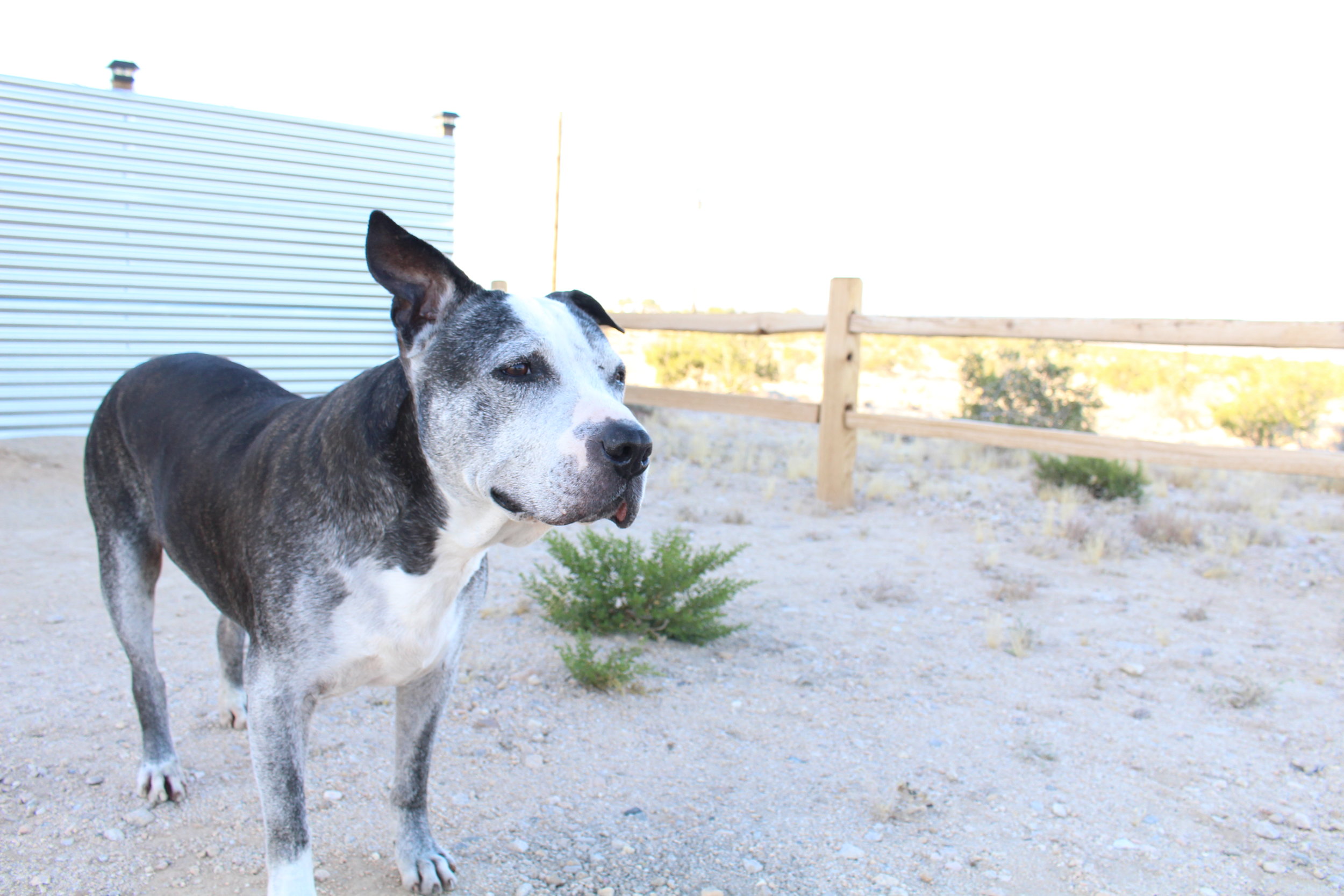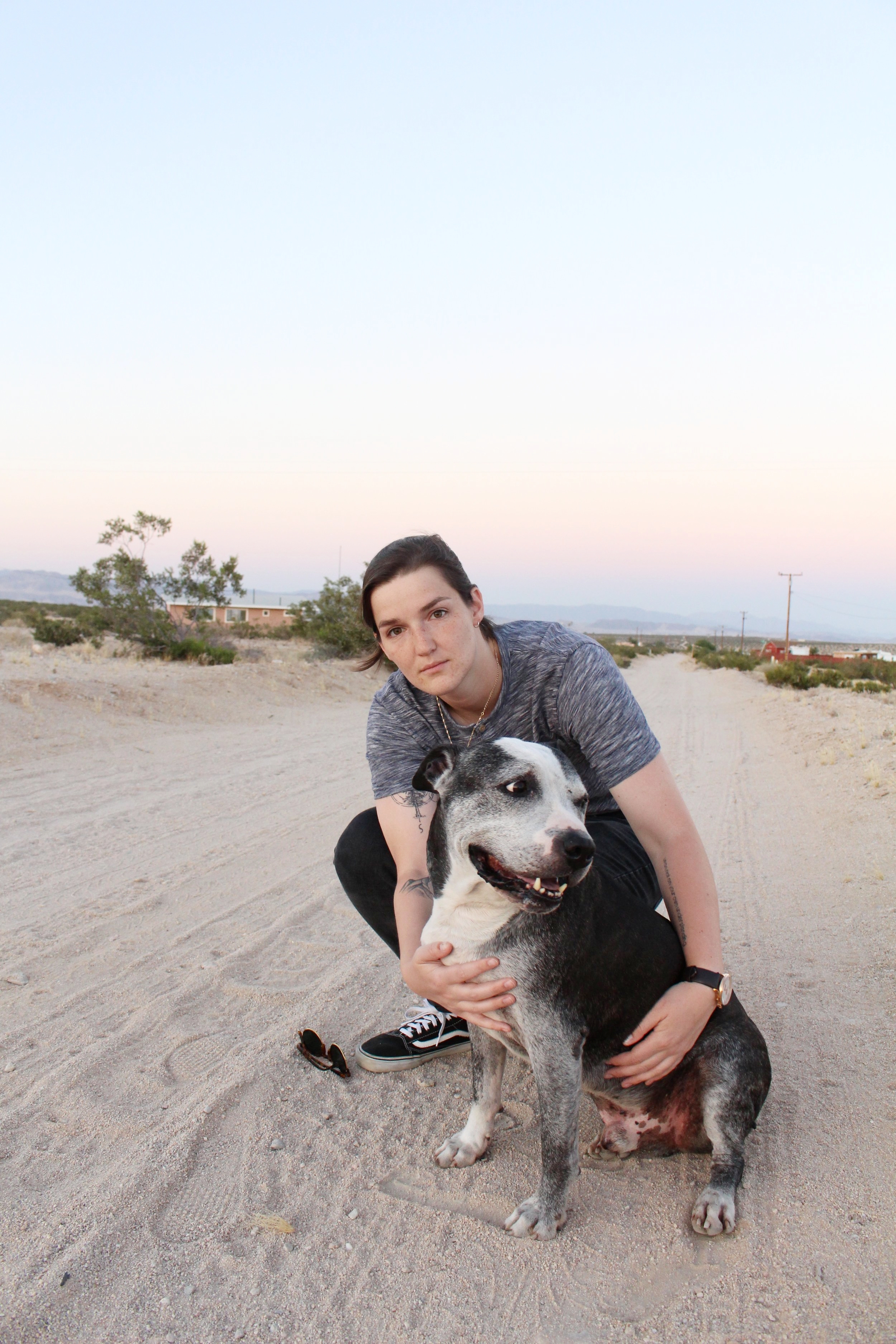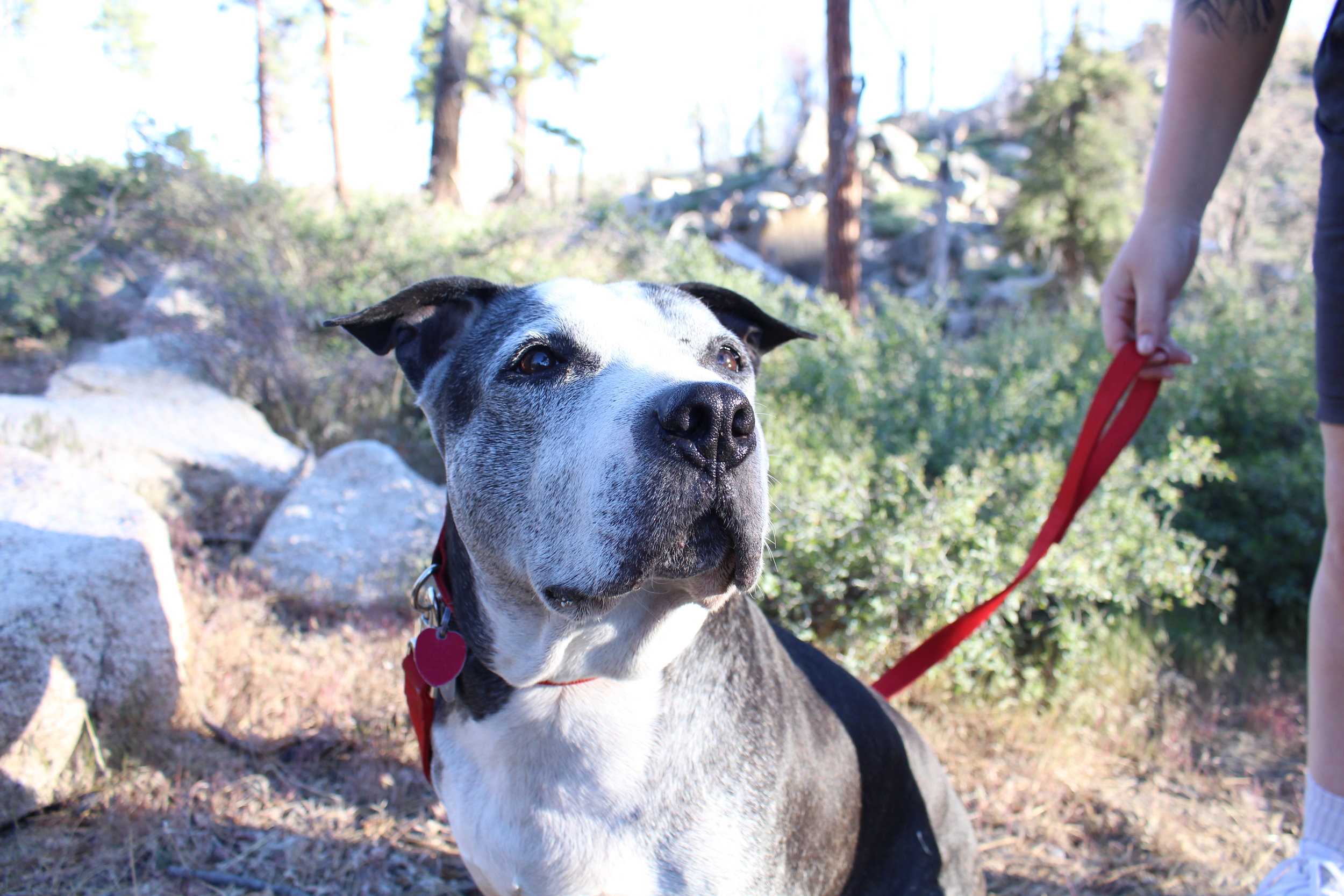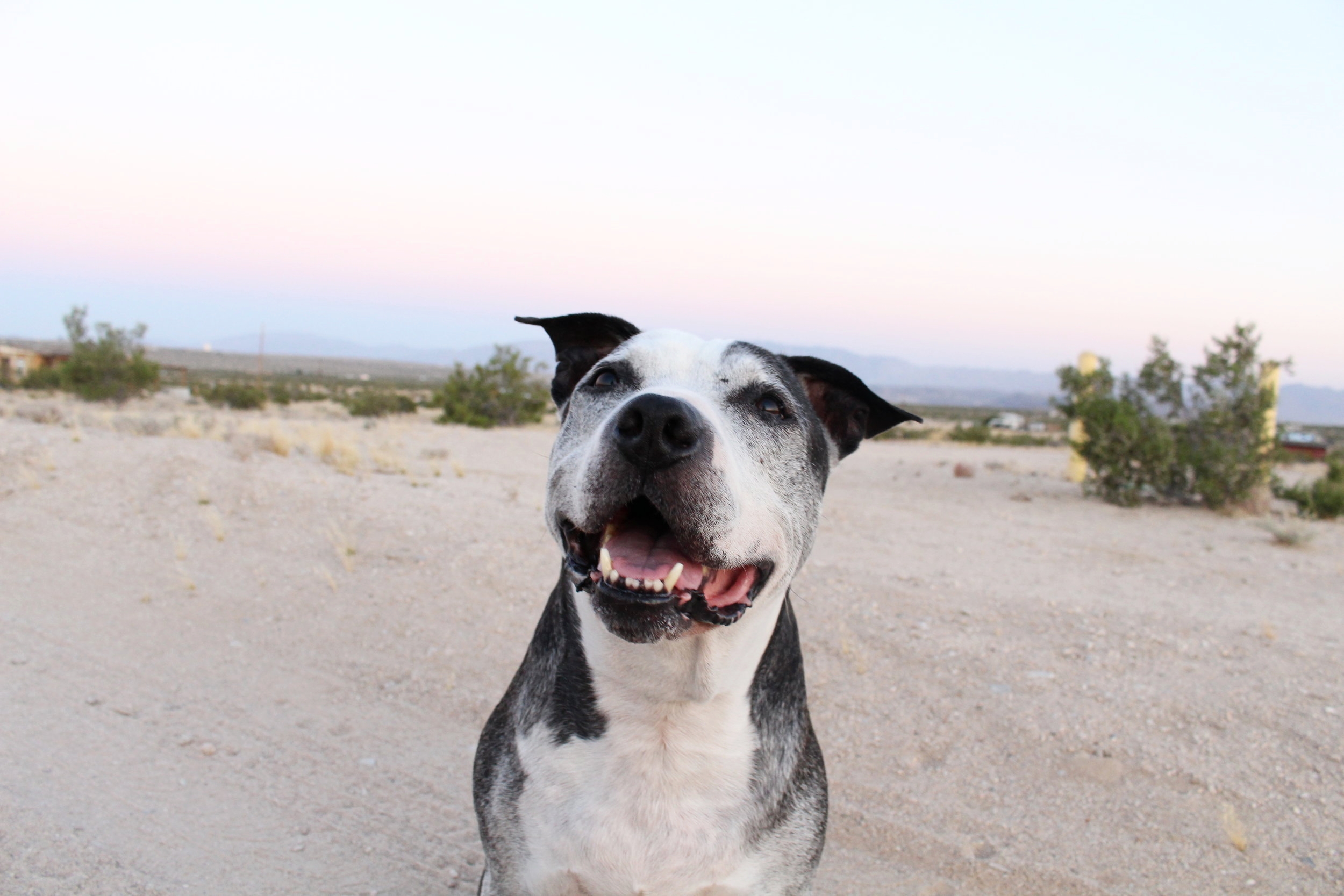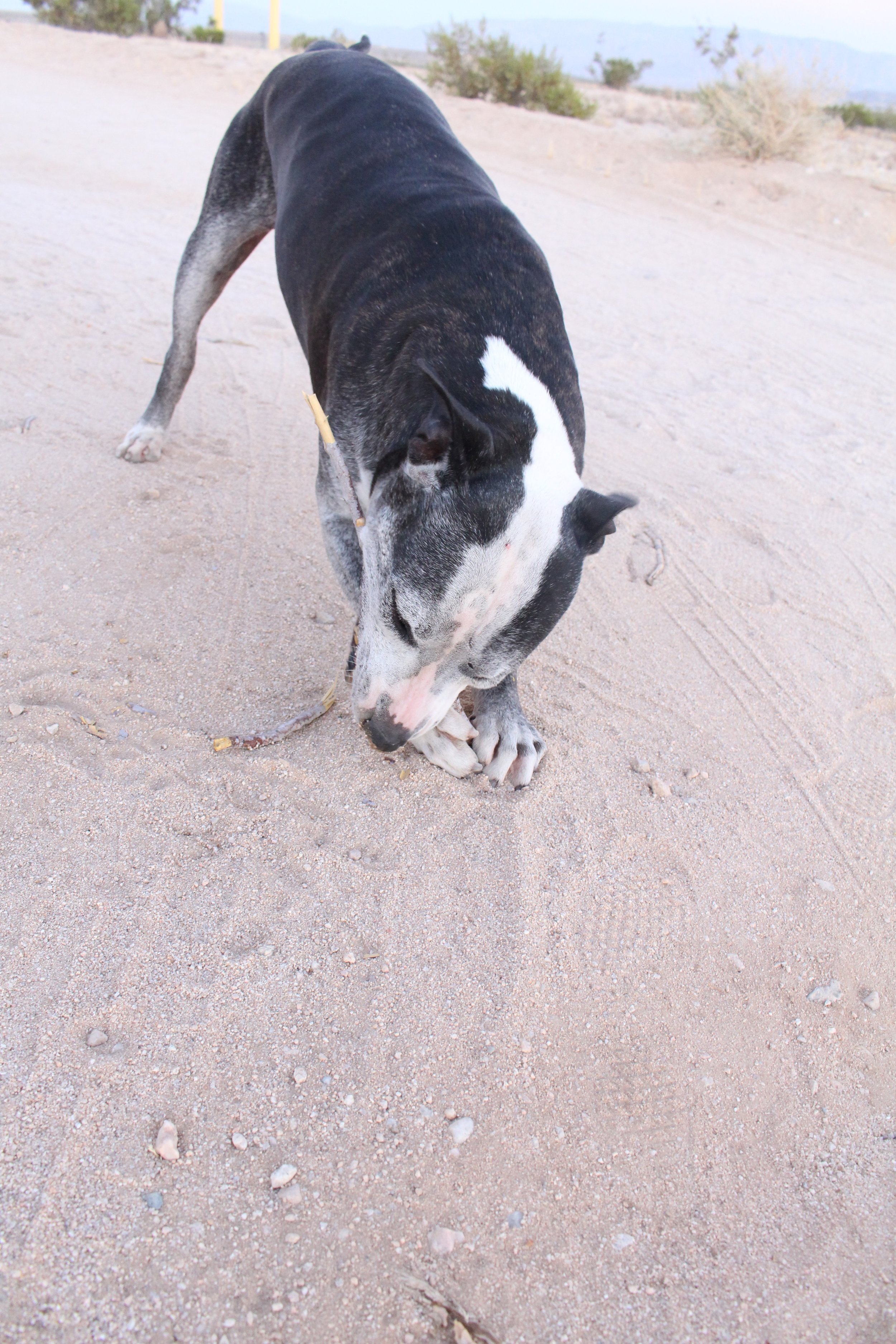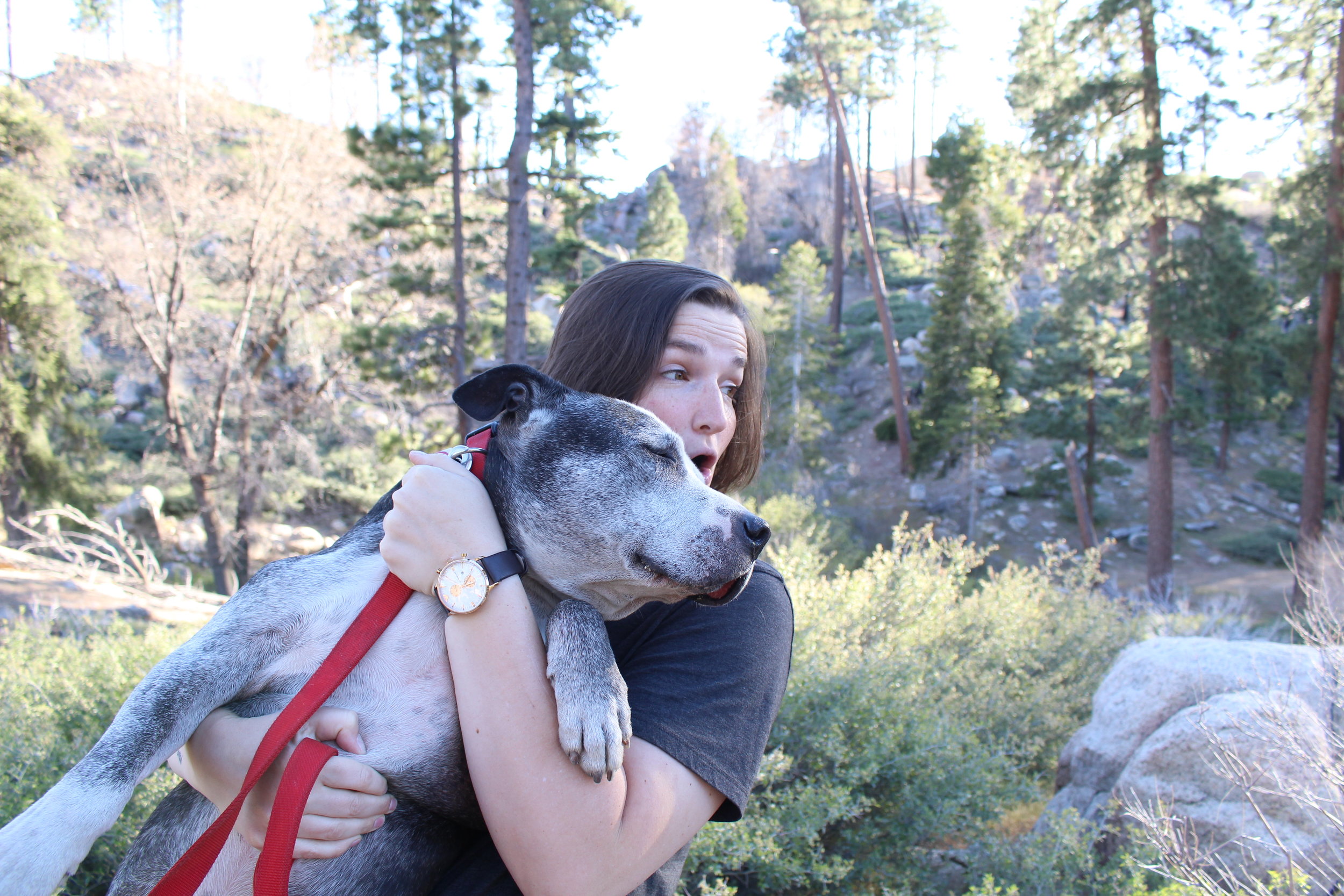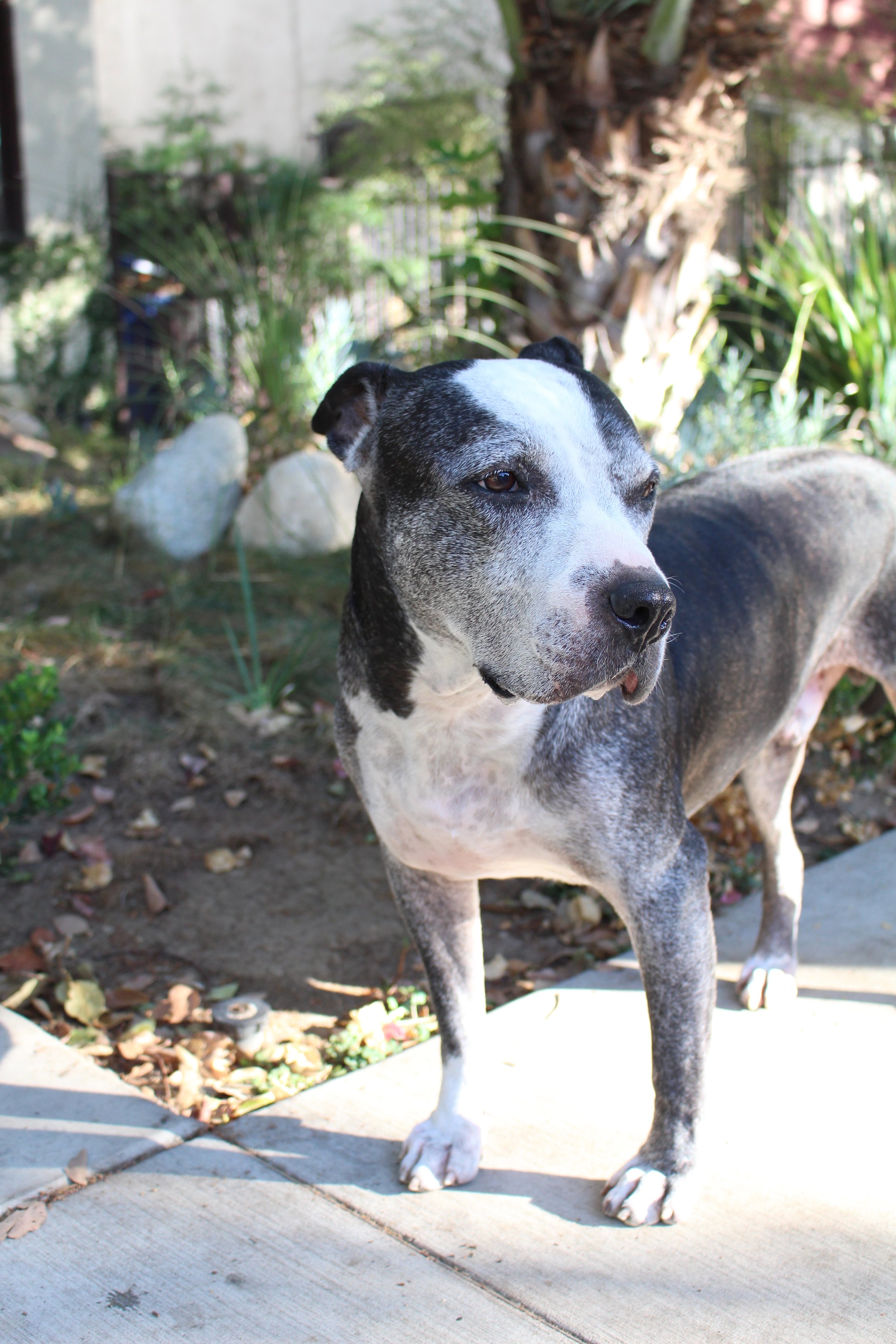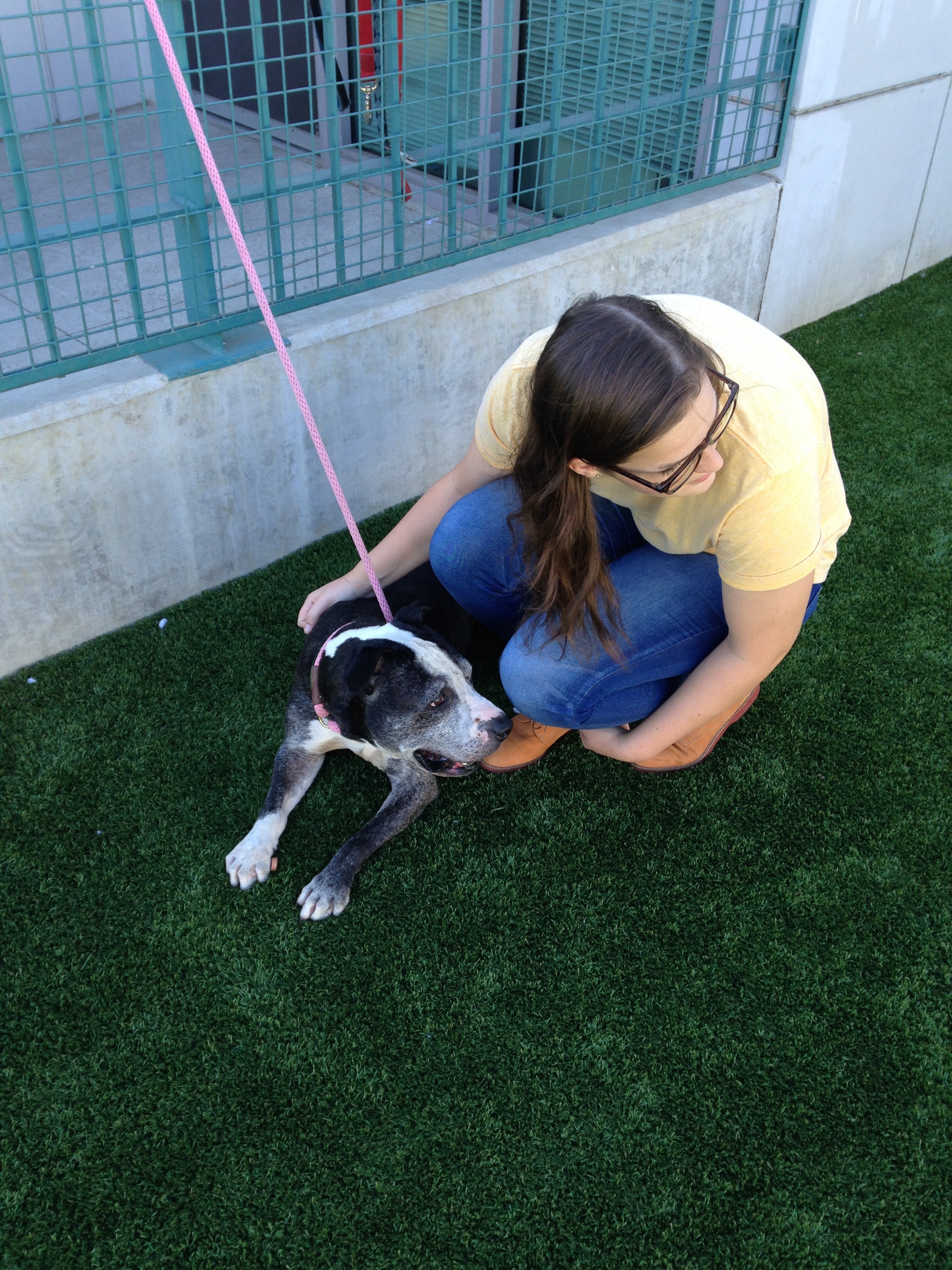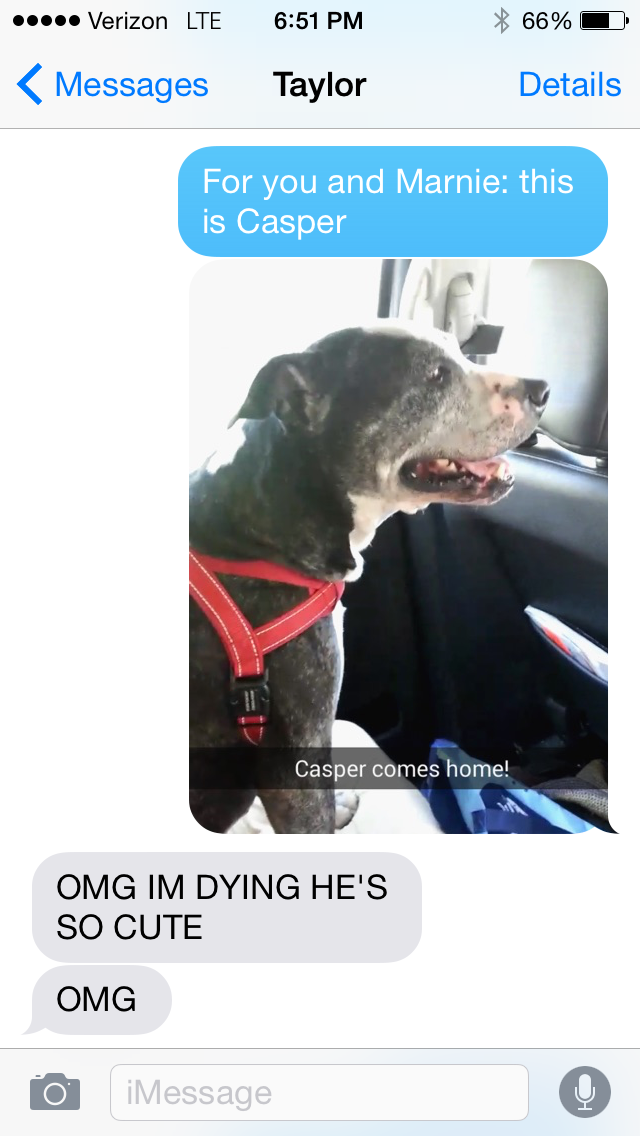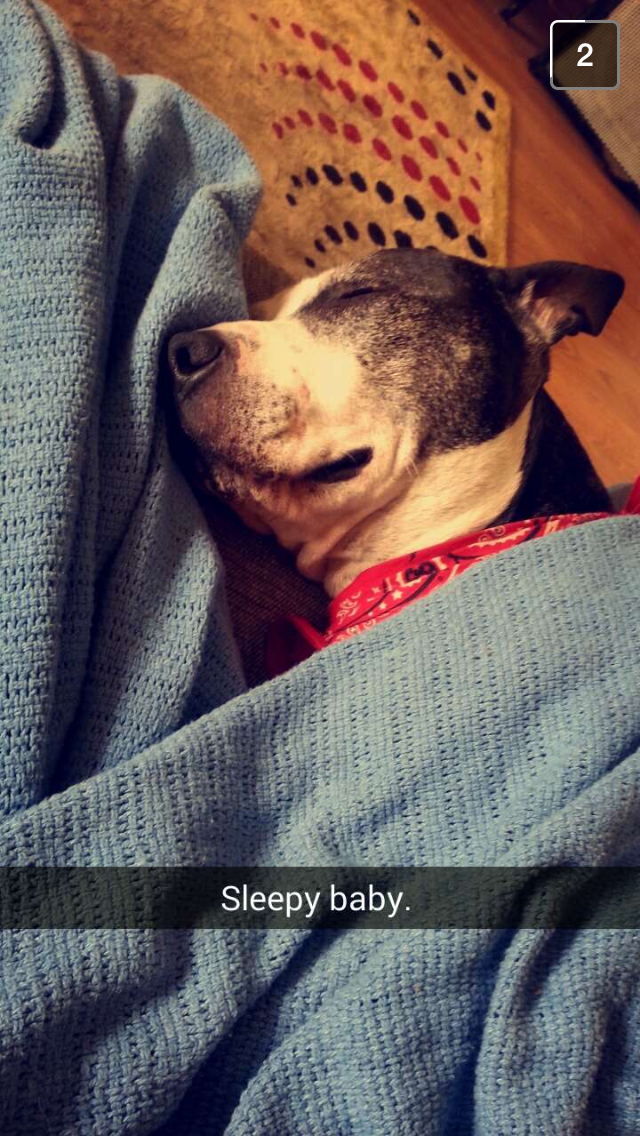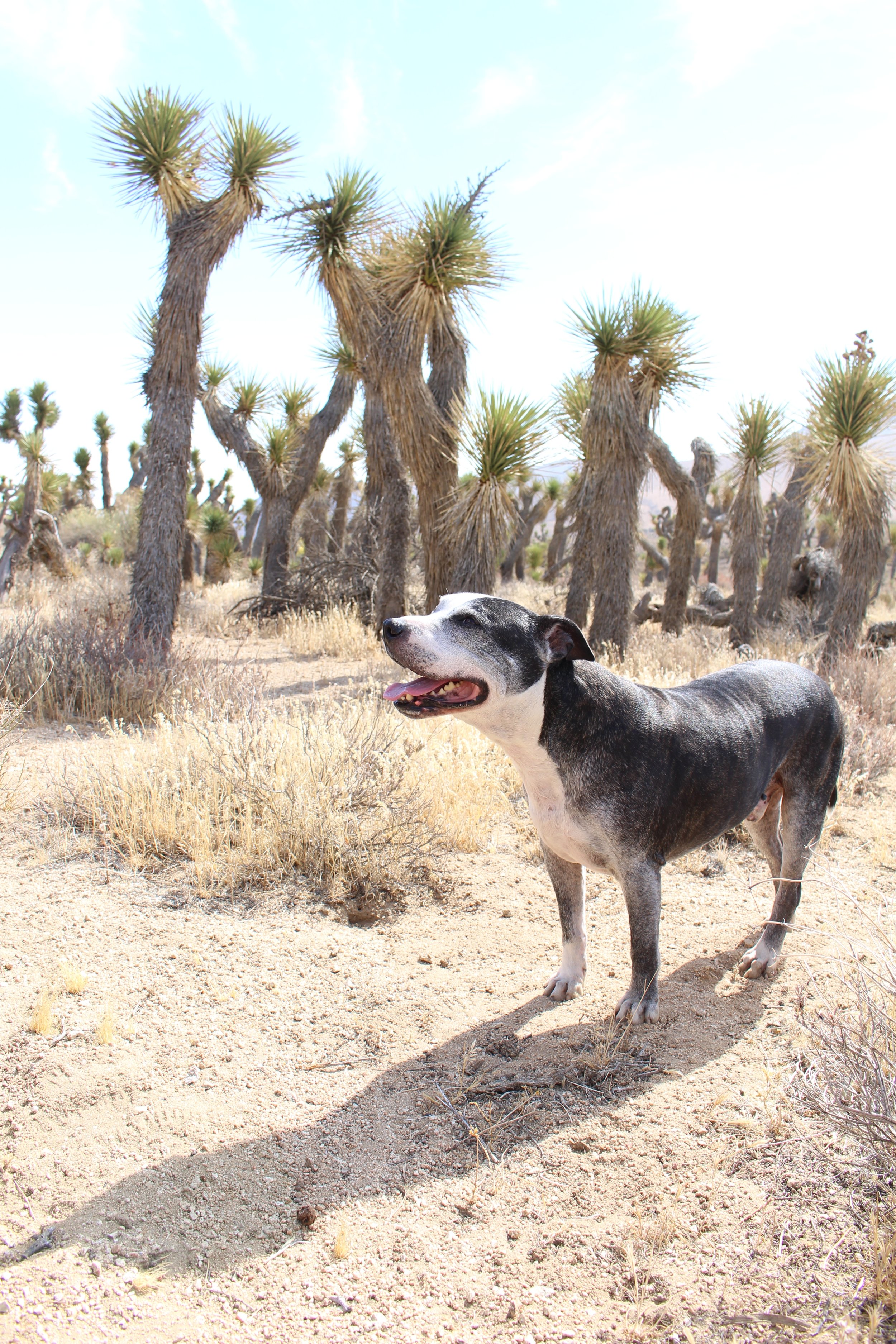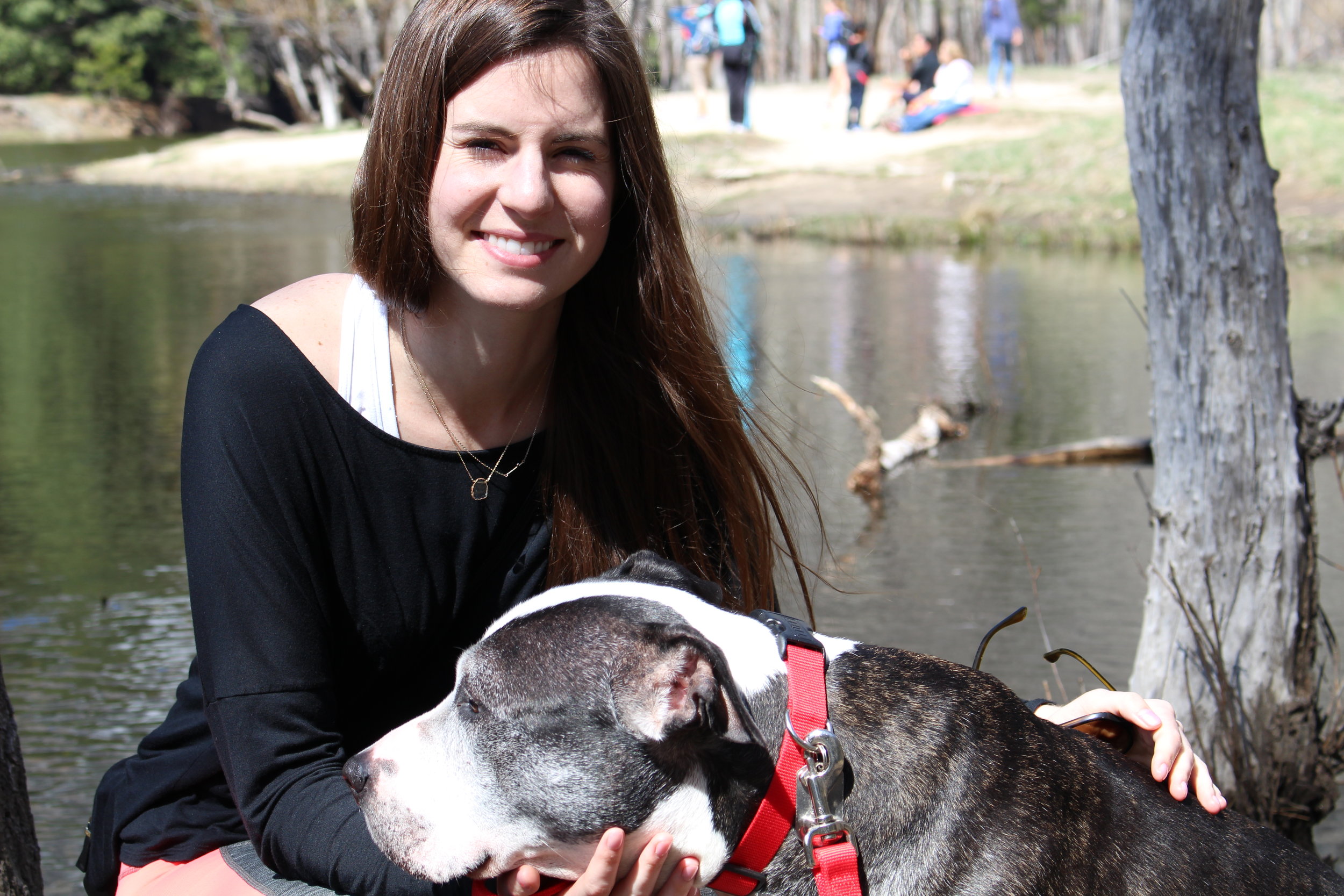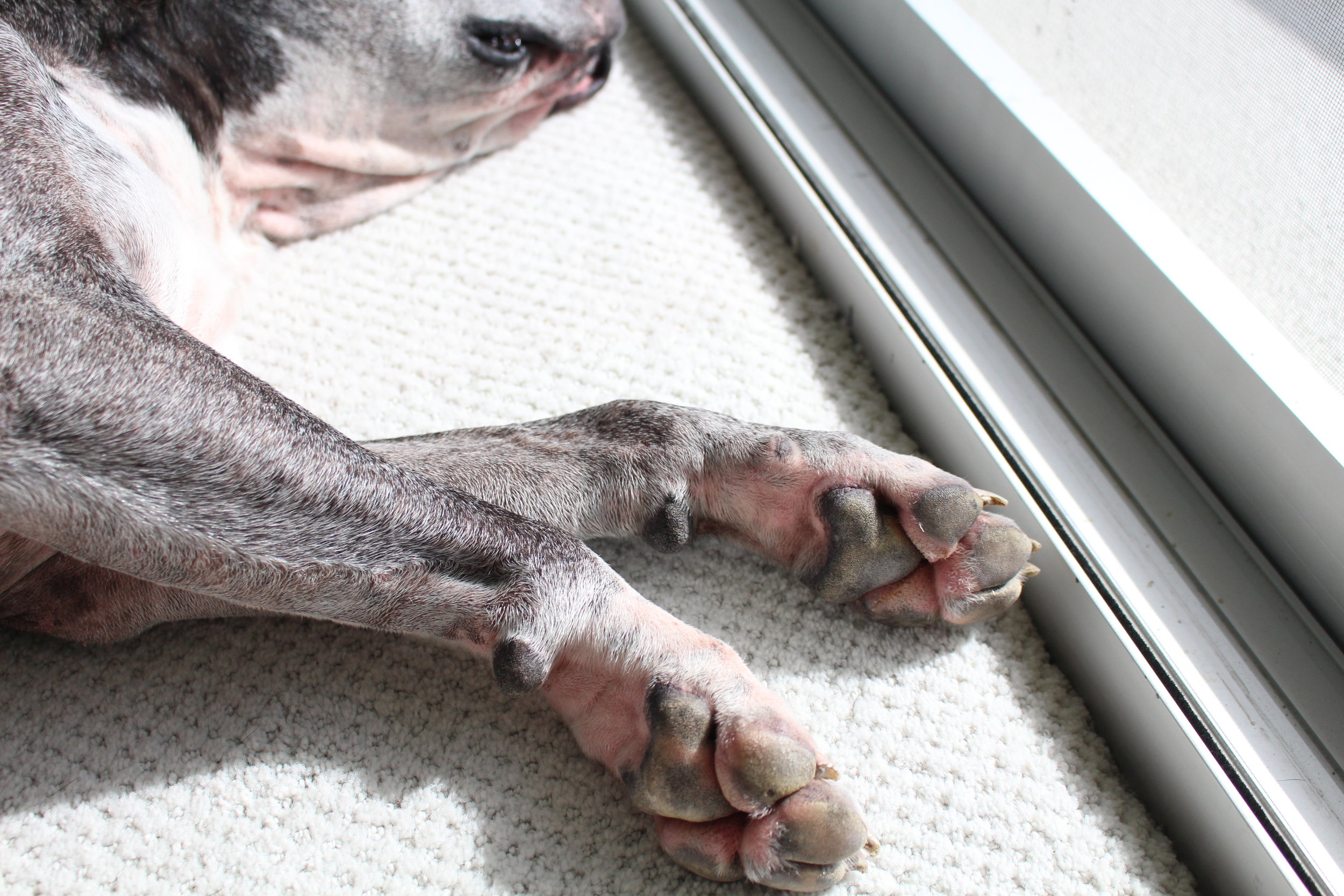In case this is the first post you're reading about sweet Casper, here's a little bit of background. He was an 80-pound older pit bull with a dark past. He was most likely fought on an amateur level, and judging by his scars, he lost most of his fights. We didn't know he had dog aggression when we adopted him. However, it quickly became apparent on walks that he would hulk out when he got near another dog. For the first year or so that we had him, going on walks was super stressful. He didn't like it, we didn't like it, and we lived in fear of him having a bad encounter with another dog. We walked him with a muzzle for awhile.
Within a few months, we started working with a trainer (who was perfectly nice, but I don't recommend and won't link here) who was all about positive reinforcement. She claimed to have worked with many aggressive dogs in the past, but we just didn't see any progress. Casper stumped a lot of dog trainers and behavioralists--they would meet him and say "he's so sweet, like a therapy dog; I can't imagine that he's aggressive." This particular trainer would use a lifelike stuffed animal dog to try to replicate Casper's issues in a controlled setting, but he wouldn't react. We spent hours (and thousands of dollars) getting him to essentially perform tricks and be "comfortable" with Grace as his handler (he was already comfortable before we began the training).
If you can't already tell, I am now a firm believer that this type of training does NOT work for many dogs--especially dogs that are large/have a lot of physical strength, are smart and/or stubborn, or have preexisting behavioral issues. Casper checked all of those boxes. Positive reinforcement training--that is, mostly just giving treats for good behavior--only exacerbated his problems, as we later would learn.
Around the year and a half mark of having Casper, we had pretty much resigned ourselves to his issues. And we were okay with it. Training was going nowhere; he was more terrified and aggressive toward other dogs than ever. We just said to each other, "This is okay. He doesn't like other dogs. He doesn't WANT to like other dogs. What we need to do is just keep him isolated from all dogs and let him live the rest of his life in peace." Right about this time, we got a recommendation from Grace's then-boss. She had heard about a very special dog trainer/dog psychologist who worked in rehabilitating abused dogs and dealing with aggression issues. Honestly, we were skeptical. But we didn't have much to lose (other than more money down the drain, haha) and decided to try it.
Enter Brandon Fouché. There are one or two things that we don't do that Brandon recommended, but for the most part, we drank the "Fouché Way" kool-aid and are big believers in his methods. This post isn't intended as a promotion of his services or a review necessarily; I'm just sharing our experience.
When we contacted Brandon's office, they recommended that we leave Casper for a full-day evaluation, during which he would be integrated with Brandon's "pack." So we dropped him off in the morning. During that entire day, Grace and I were SO nervous. Texting each other things like, "what if Casper hurts or kills one of Brandon's pack dogs? What if we made a huge mistake?" We had read the glowing reviews of people saying he'd changed their dog's life, but it seemed too good to be true. When we went to pick him up, we were incredibly stressed and expecting the worst. We walked into Brandon's office and were shocked, amazed, and crying at the videos Brandon had of Casper calmly standing in the middle of a group of dogs, unflinching. It was unreal. However, Brandon did not "fix" Casper, and it's not like we could immediately release Casper into a crowded dog park. While some of Brandon's testimonials make it sound that way, it's not a brainwashing of your dog so that they no longer have issues. The real work only begins when you pick up your dog from Brandon's facility. But we were willing to put in the work, and it did change our lives with Casper and his relationship with the world and other dogs.
We ended up having about a three-hour training session with Brandon that afternoon--without Casper. The training was for us. We had to learn how to be the alphas. Brandon explained to us that dogs are really just "wolves in dogs' clothing." The pack mentality is so ingrained, and we need to work with that rather than against it. I won't list all of the details here (feel free to Contact me if you want more information about our experience), but basically, Brandon had a strict set of rules for our interactions with Casper. The position he needed to be in the group on our walks, the way we should talk to him, etc. etc.--these were all dictated by Casper's natural position in a pack setting, which Brandon evaluated (in case you're curious, he found that Casper was mentally submissive but physically dominant). All of Brandon's rules were overall fairly minor changes. But they had a dramatic effect. Casper no longer acted fearfully on our walks. We could pass by another dog within a few feet without any reaction. While we understood that because of Casper's past, he would never ENJOY interacting with another dog, it was no longer scary if another dog was nearby. We didn't try to get him to make dog friends, but being able to just go outside with him took the biggest weight off of our shoulders. Casper finally was able to relax because we were no longer (unknowingly) giving him the signal that he needed to protect us. It changed everything.
I'll be the first to admit that the idea of not giving treats for good behavior and not using positive reinforcement didn't appeal to me because it seemed "mean." I wanted to be a loving dog mom, not strict and withholding. But what Brandon advocates is not coldness toward your dog, it's just the implementation of boundaries that will make your dog feel safe and secure in your "pack." I should also emphasize that he doesn't use any physical negative reinforcement--no physical contact, shock collars, etc. It's all about using a commanding voice, using your presence and the way you position yourself on a walk to show your dominance in the pack, and other (non-hurtful!) techniques. I would never, ever, recommend any training method that involved pain for a dog. But having rehabilitated a dog with pretty serious issues, I can confidently say that using purely positive reinforcement isn't doing them or you any favors (in most cases).
The reason why positive reinforcement isn't great (for large/smart/stubborn/aggressive dogs; I'm not commenting on ALL dogs) is because when you give them a treat for just sitting or doing a mindless trick, you're essentially telling them, "you are smarter than I am. You deserve a treat just for doing something that you already know how to do. I praise you because you are the leader of this pack." While yes, in the moment the dog enjoys the treat, it comes with mental baggage for them. It sounds silly, but the dog now thinks, "I am supreme. I get treats for doing something as simple as sitting or doing the 'shake' trick that humans like so much. If they are giving me treats for this simple behavior, then they must be beneath me. Poor humans. I must protect and defend them, and I must lead them on all adventures and outings from the pack den." This leads to increased aggression, stress, and unwanted dominant behavior from the dog. Most dogs are happier in a more lowly pack position--Casper definitely was! This isn't to say you can never give treats, but in my experience it's actually better to give them for no reason, not as a reward. Then, you appear as a benevolent leader to the dog, giving treats when YOU feel like it. If they earn the treat, then they get higher status in the pack. That signals to them that they can climb the ladder and eventually become the alpha, which is unstable for them and stressful. It's all about the way dogs think--which is very different from humans!
